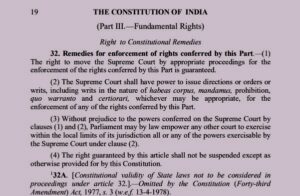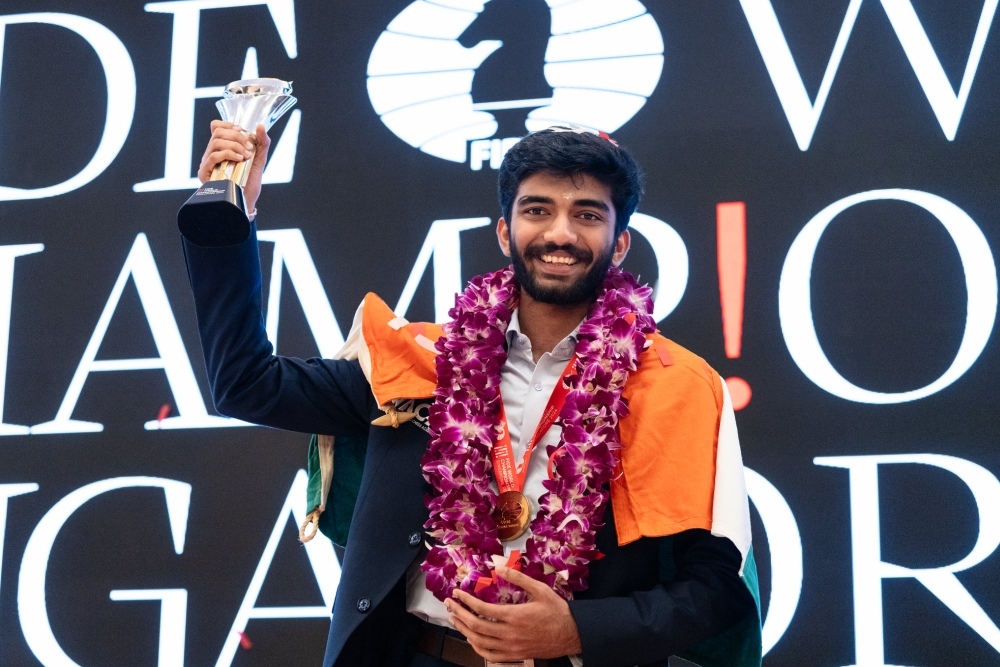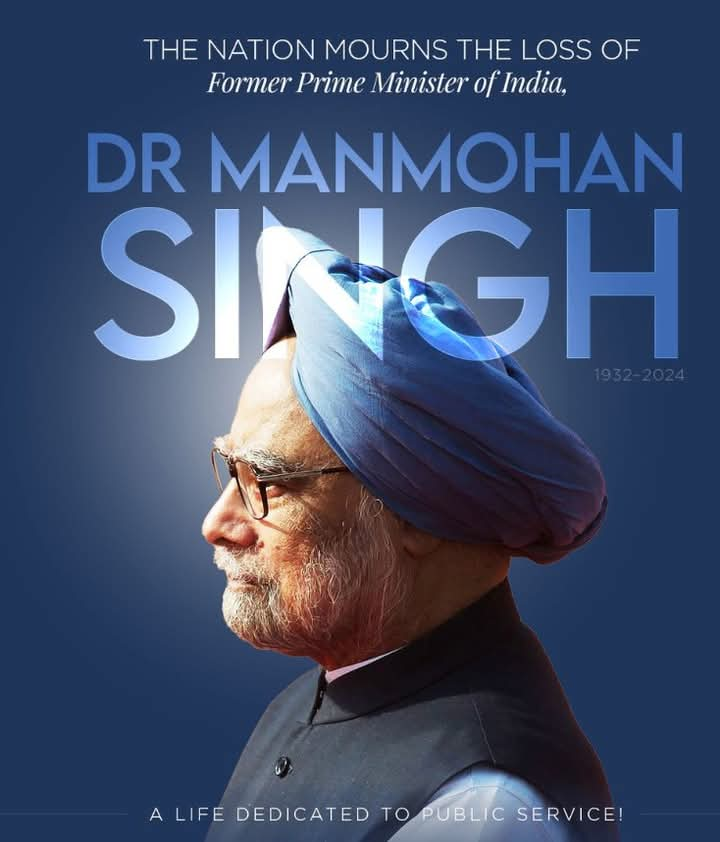Referring to the Article 32 (Right to Constitutional Remedies) in the Constituent Assembly on 9th December 1948, Dr. Bhimrao Ambedkar said, “if I was asked to name any particular article in this Constitution as the most important–an article without which this Constitution would be a nullity–I could not refer to any other article except this one. It is the very soul of the Constitution and the very heart of it.”
Dr. Ambedkar said that the Article 32 (Right to Constitutional Remedies) of the Constitution as the heart and soul of it because it grants the citizens the right to approach the Supreme Court to protect or enforce their fundamental rights. This Article ensures that fundamental rights such as Right to Equality, Right to Life and Freedom from discrimination should be implemented in letter and spirit. Article 32 also gives protection to fundamental rights from any kind of legislative excesses and encroachments.
Important Facts
- Article 32 is considered as heart and soul of the Constitution.
- Article 32 allows citizens to directly approach Supreme Court in case of violation of fundamental rights.
Powers of Supreme Court
Right to Constitutional Remedies (Article 32) of the Constitution gives power to the Supreme Court to issue directions or orders or writs, including writs in the nature of habeas corpus, mandamus, prohibition, quo warranto and certiorari, whichever may be appropriate, for the enforcement of any of the rights conferred by this Part.
Important Judgments of the Supreme Court
A.K. Gopalan Case – 1950
The Supreme Court in its ruling said that there was no violation of Fundamental Rights mentioned in Articles 13, 19, 21 and 22 under the provisions of the Preventive Detention Act as it follows all the criteria. SC said that the Prevention of Detention Act does not violate any Fundamental Rights if a person detained under it was as per the procedure established by law.
Shankari Prasad Singh Deo Case – 1951
The Shankari Prasad Singh Deo vs. Union of India and State of Bihar (and other cases) case in 1951 is a major and important judgement. It addresses the issue of the power of the Parliament to amend the Constitution with special reference to fundamental rights.
This case dealt with the amendability of Fundamental Rights (the First Amendment’s validity was challenged). The SC contended that the Parliament’s power to amend under Article 368 also includes the power to amend the Fundamental Rights guaranteed in Part III of the Constitution.
The Berubari Union Case – 1960
It is a dispute of land ownership of the Berubari region of Jalpaiguri district in West Bengal. It is a boundary dispute between India and erstwhile Pakistan. In 1958, a pact was signed between Jawaharlal Nehru, the Prime Minister of India and Feroze Khan Noon, the Prime Minister of Pakistan. The Purpose of the Nehru-Noon Agreement was to resolve boundary dispute between India and Pakistan by dividing Berubari into two equal parts.
This agreement raised a constitutional question and the President of India sought advisory opinion from the Supreme Court of India. The advisory opinion was sought by the President of India under Article 143 of the Indian Constitution.
Important Facts
- Nehru-Noon Agreement (1958) was signed to resolve boundary dispute in Berubari region of Jalpaiguri (West Bengal).
- Under Article 143 of the Constitution of India, President can seek advisory opinion from Supreme Court.
The Supreme Court examined Article 3 in detail and held that the Parliament cannot make laws under this article in order to execute the Nehru-Noon agreement. Hence, the 9th Amendment Act was passed to enforce the agreement.
Other Important Cases: Romesh Thapar Case (1950), Golaknath Case (1967), Kesavananda Bharati Case (1973), Indira Nehru Gandhi v. Raj Narain Case (1975), Habeas Corpus Case (1976), Maneka Gandhi Case (1978), Maneka Gandhi Case (1978), Minerva Mills Case (1980), Waman Rao Case (1981), Shah Bano Begum Case (1985), MC Mehta and Union of India (1986), Indra Sawhney and Union of India (1992), S.R. Boammai Case (1994), Vishaka and State of Rajasthan (1997), Samatha and State of Andhra Pradesh (1997), L Chandra Kumar Case (1997), Puttuswamy Case (1997), Right to Privacy, Repealing Section 377 (2018), Lily Thomas vs Union of India (2000), Peophili a Case (2011), Aruna Shanbaug Case (2011), NOTA Jugdement (2013), Nirbhaya Case (2014), National Legal Authority Services and Union of India (2014), Triple Talaq Judgement (2016).


